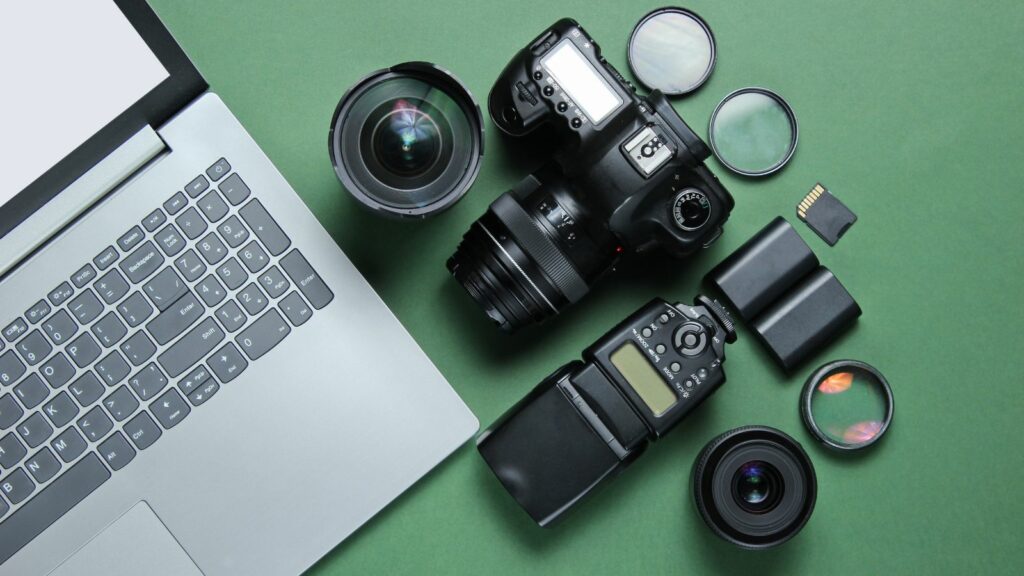In the ever-evolving world of photography, staying ahead means having access to the latest gear. But let’s face it, top-notch camera equipment doesn’t come cheap. That’s where camera gear rental steps in, offering a solution that’s both economical and flexible.
Camera Gear Rental

Diving into the camera gear rental industry, this section elucidates key advantages and popular equipment choices for aspirants and pros alike. Ensuring a thorough understanding, it elaborates on why it’s a beneficial choice and the types of gear photographers often pick.
Renting camera gear presents a wealth of benefits. One key advantage is financial flexibility. By renting, photographers significantly cut down the initial expenditure associated with purchasing expensive gear. They’re free to try various high-end equipment without buying it outright. Another benefit lies in the variety offered. Renting exposes photographers to an assortment of equipment, fostering creativity and technique enhancement. Further, it provides the opportunity to test different gear before making a purchase, minimizing the potential for regretful buying decisions.
Process of Renting Camera Gear
How to Choose the Right Equipment
Selecting the appropriate gear depends on several factors. Consider the type of photography, such as landscape, portrait, wildlife, or action photography. For example, for landscape photography, wide-angle lenses like the Canon EF 16-35mm f/2.8L III USM might be suitable. Contrastingly, sports photographers often prefer telephoto lenses such as the Nikon 70-200mm f/2.8G ED VR II.
Camera specifications, like sensor size, also play a significant role. High-resolution options boast full-frame sensors such as the Canon EOS 5D Mark IV or Nikon D850. Costs depend on the gear’s quality and sophistication, with higher-end models commanding steeper prices.
Understanding Rental Terms and Conditions

Grasping the terms and conditions of a camera gear rental deal is critical in avoiding surprises later on. These may cover aspects like rental period, late returns, damage, and loss. For instance, rentals typically range from a few days to several weeks. The tenant is liable for any damage during this period, barring situations covered by insurance.
Late returns often incur extra charges, usually priced per day. Exceptions apply if the rental company is notified in advance and approves a delayed return. Loss of equipment usually prompts customers to pay full replacement costs, though many companies offer optional insurance to cover this.
Tips for a Smooth Camera Gear Rental Experience
Inspecting Equipment Before Renting
One key aspect of a smooth rental process involves inspecting the equipment in advance. Verify the condition of items like a Nikon D850 or a Canon EOS 5D Mark IV, along with any rented lenses and accessories, to confirm they’re in good working order. Do not hesitate to test the shutter, autofocus, and any other functions. Take note, the equipment’s exterior condition often provides an insight into its handling and maintenance by previous renters. For instance, fresh scratches or worn out buttons could suggest rough usage. By conducting a thorough inspection, photographers can ensure there’s no hidden damage jeopardizing the quality of their work.
Dealing with Damage or Equipment Issues

While all care must be taken when it’s about handling rented camera equipment, accidents can still happen. When faced with equipment issues or damage, it’s paramount to inform the rental service immediately. Most of them have protocols in place to handle such situations. Hiding the issue could lead to escalated costs due to late detection, in addition to losing the trust of the rental company. At the same time, maintain a cooperative attitude, allowing the company to evaluate the problem and come up with an appropriate solution. Cooperation ensures the issue gets resolved as quickly and efficiently as possible, getting you back to what you do best – taking great photographs.
Financial Flexibility
Renting camera gear has clearly emerged as a smart choice for photographers, be they seasoned professionals or budding enthusiasts. It’s a beneficial strategy that offers financial flexibility, a chance to experiment with top-tier equipment, and the convenience of home delivery. With popular gear like the Canon EOS 5D Mark IV and Nikon D850 readily available for rent, photographers can enhance their craft without heavy investment.



